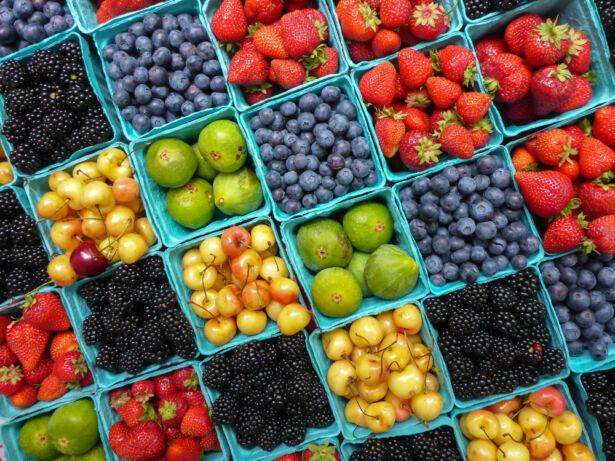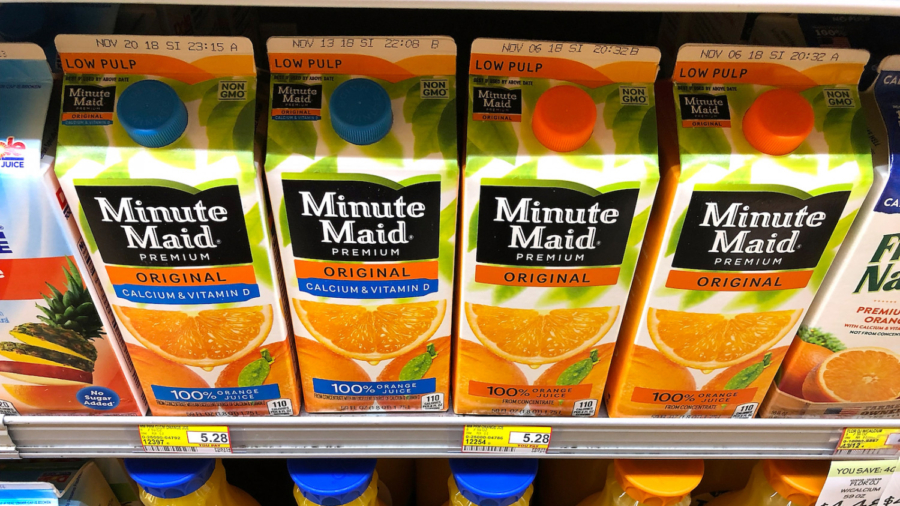A new analysis of 42 prior studies has found that drinking even just one glass of 100 percent fruit juice per day increases the body weight of both children and adults.
“One fundamental problem with juice is quantity; consuming fruit this way makes it so easy to overdose,” Dr. Walter Willett, a professor of epidemiology and nutrition at Harvard T.H. Chan School of Public Health who is also a professor of medicine at Boston Harvard Medical School, told CNN.
The study indicates that there are reasons for concern that intake of 100 percent fruit juice may contribute to weight gain due to its high amounts of free sugars and energy. As these drinks contain little to no fiber, they give the consumer the impression they’ve not taken in much nutrition—which is incorrect.
“How often do we eat three oranges?” Mr. Willet said. “Yet, a glass of OJ is about three oranges that can be consumed in a minute or two, and we can go back and have another, and that will add many calories and lead to a spike in blood glucose.”
Too much sugar in the blood is a known cause of diabetes, obesity, heart disease, and other chronic conditions.
The authors said their meta-analysis unveiled “a positive association” sufficiently significant to warrant more targeted research. Their findings were deducted from 42 related studies that did not directly investigate the causation between fruit juice and weight gain.
Pediatric endocrinologist Dr. Tamara Hannon, a member of the American Academy of Pediatrics committee on nutrition, confirmed the researchers’ conclusion, saying that they reflect the clinical reality.
“Whole fruits and vegetables come in packages of nutrients—carbohydrates, protein, fat, minerals and vitamins that are all contained with fiber. That’s how our bodies are meant to get nutrition,” she explained.
“When we take away the package, we take away the fiber and the structural parts of the food, and our body digests and metabolizes it differently than it evolved to do so.”

When fruit is consumed, the digestive system gradually digests the fibrous material, and nutrients are absorbed over time, while juice is immediately processed, leading to a rapid absorption of fructose in the liver and the blood.
“Further trials of 100% fruit juice and body weight are desirable,” the researchers said. “Our findings support guidance to limit fruit juice consumption to prevent intake of excess calories and weight gain.”
The American Academy of Pediatrics recommends avoiding juice entirely for babies younger than 12 months and limiting the intake to 4 ounces a day for children ages 1 to 3 years old and only 6 ounces a day for children ages 4 to 6 years old.
According to the National Nutritional Guidelines from the U.S. Departments of Agriculture and Health and Human Services, 100 percent juice intake for teens and adults should not exceed 8 ounces a day.


